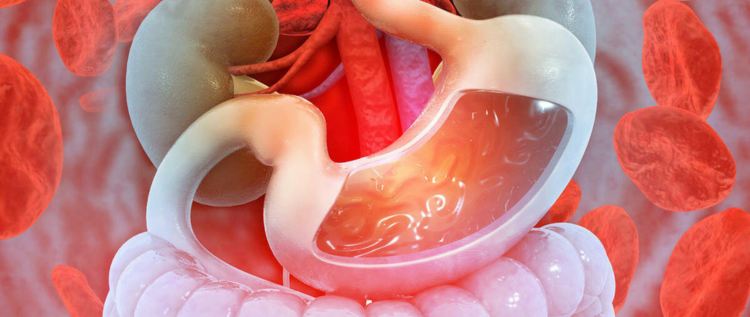
Gastrointestinal (GI) bleeding refers to any bleeding that occurs in the digestive tract, from the mouth to the rectum. It is a serious medical condition that requires immediate attention and can range from mild to life-threatening depending on the severity and location of the bleeding.
Causes of Gastrointestinal Bleeding
There are several potential causes of GI bleeding, including:
-
Peptic Ulcers: Open sores that develop on the inner lining of the stomach or upper part of the small intestine.
-
Esophageal Varices: Swollen veins in the lower part of the esophagus, often due to liver cirrhosis.
-
Gastritis: Inflammation of the stomach lining, which can lead to erosions and bleeding.
-
Colorectal Polyps or Cancer: Abnormal growths in the colon or rectum that can bleed.
-
Inflammatory Bowel Disease (IBD): Conditions such as Crohn’s disease or ulcerative colitis can cause inflammation and ulcers in the digestive tract.
-
Diverticulosis: Small pouches that can develop in the walls of the colon, which may bleed if they become inflamed or infected (diverticulitis).
Symptoms of Gastrointestinal Bleeding
The symptoms of GI bleeding can vary depending on the location and severity of the bleed, but may include:
-
Bright Red or Dark Black Stools: Blood in the stool is a common sign of lower GI bleeding.
-
Vomiting Blood: If bleeding occurs in the upper digestive tract, blood may be vomited or appear as coffee-ground-like material.
-
Abdominal Pain or Cramping: Especially if the bleeding is severe or chronic.
-
Weakness, Dizziness, or Fainting: Due to significant blood loss.
Diagnosis and Treatment
Diagnosing GI bleeding typically involves a combination of medical history, physical examination, blood tests (including hemoglobin and hematocrit levels), imaging tests (such as endoscopy, colonoscopy, or capsule endoscopy), and sometimes a biopsy.
Treatment options depend on the cause and severity of the bleeding, and may include:
-
Medications: Proton pump inhibitors (PPIs) to reduce stomach acid, antibiotics if there’s an infection, or medications to promote blood clotting.
-
Endoscopic Therapy: Procedures such as endoscopic band ligation or sclerotherapy to stop bleeding from varices or ulcers.
-
Surgery: In severe cases or if other treatments fail, surgery may be necessary to control bleeding or remove affected tissue.
Prevention and Outlook
Preventing GI bleeding often involves managing underlying conditions that can lead to bleeding, such as treating peptic ulcers promptly, managing liver disease or inflammatory bowel disease effectively, and avoiding medications that can increase the risk of bleeding.
Conclusion
Gastrointestinal bleeding is a serious condition that requires timely medical evaluation and treatment. Early diagnosis and intervention are crucial for a successful outcome. If you experience symptoms of GI bleeding, it’s important to seek medical attention immediately. For personalized care and expert guidance on managing gastrointestinal health, consult with a healthcare professional like Dr. Ashish Kumar Jha, who specializes in gastroenterology and can provide comprehensive evaluation and treatment options tailored to your needs.
